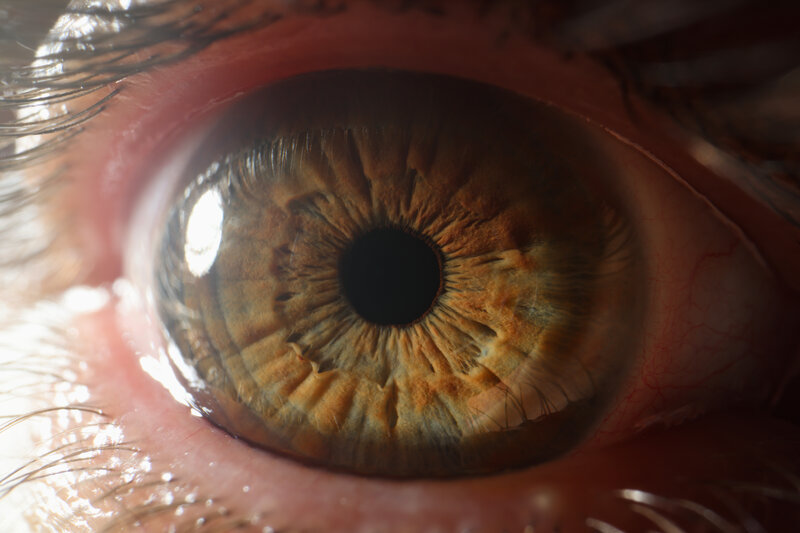Retinal detachment, or detached retina, means that the light-sensitive portion of your eye (the retina) has partially or fully come away from its anchor at the back of the eye. Symptoms vary according to the severity of this detachment. However, this condition can lead to permanent vision loss without early treatment.
While annual eye exams catch early detachment, patients should always contact their optometrist or ophthalmologist whenever they notice something different about their vision.
Symptoms And Treatment For Retinal Detachment
A minor detachment may not be noticeable yet, but your optometrist will see it when examining your retina during a routine comprehensive eye exam. Once the detachment is more severe, patients notice:
- Obscured vision or shadows at the center or on the peripheral (sides) of the visual field
- Floaters moving around or across the visual field that do not go away with rubbing or artificial tears
- Flashes of light in one or both eyes
- A gray “curtain” covering your field of vision
If you experience these symptoms, contact your optometrist. Odds are that she’ll schedule you for an anatomical eye exam, during which s/he’ll dilate your pupils and get a good look at your retina. This tool shines a bright light through the fully dilated pupil, allowing us to see whether or not any part of the retina is pulled away from the back of the eye.
If the doctor sees evidence of retinal detachment, s/he may order additional tests such as an ultrasound or an optical coherence tomography (OCT) scan of your eye. These are also painless but they give us a more exact understanding of the retina’s position in the eye.
The good news is that detached retinas are treatable. However, timeliness is important. We’ve had patients who ignored the increased floaters or the curtain effect for weeks or months. As a result, scar tissue continues to build up in the rear of the eye as the eye works to heal itself. Unfortunately, the retina remains detached and the accumulated scar tissue may compromise the repair. If we can’t eliminate all of the scar tissue or damaged eye tissue, it’s more difficult to reattach the retina properly, and the patient experiences a permanent degree of vision loss.
Treating Retinal Detachment
Once we diagnose a detached retina we’ll schedule you for one of the following surgeries. As with any eye surgery, there is some level of risk that your doctor will discuss with you.
Laser surgery or freeze treatment (cryopexy)
If the detachment is relatively minor, causing a small hole or tear, the optometrist may recommend treating it using laser surgery or freeze treatment (cryopexy) that is done right there in the office. More serious retinal detachment requires surgery by an ophthalmologist.
Pneumatic retinopexy
During the procedure, the doctor carefully places a gas bubble into your eye that presses the retina back into place and holds it there so the eye can heal itself. You’ll have to remain in a mostly face-down position for the first several days and then regularly through the first two weeks to keep the bubble in the correct place as the body and eye produce new fluid to fill the eye. After that, you can resume a modified schedule until the doctor sees the retina is back in place and you get the all-clear.
Vitrectomy
If vitreous humor (the gel-like fluid that fills and holds pressure in the eyeball) is pulling the retina away from the wall of the eye, the doctor may recommend a vitrectomy. For this procedure, s/he removes the vitreous attached to the retina and adds a gas, oil, or air bubble to press against the retina and hold it in place. Again, you’ll have very strict recovery instructions for those first few days and weeks after the surgery to ensure the bubble (and newly attached retina) stay in place.
Scleral buckle
During this surgical procedure, the doctor places a firm but stretchy band around the white of the eye. The band is called a scleral buckle, and it presses slightly on the eye to help it remain in contact and reattach to the retina. You’ll wear a patch for the first day or two after the surgery and may feel slight discomfort until you get used to the scleral buckle. After a few weeks and a green light at the final post-op visit, you can resume normal activities. In most cases, the scleral buckle remains permanently in place and there’s no need to remove it.
Why Do Retinas Detach?
There isn’t always one single reason why a retina detaches. However, risk factors put some people at higher risk for developing detached retinas. These are:
- Aging – adults 50 and up have an increased risk of retinal detachment because the vitreous humor may get harder or shrink with age, pulling pieces of the retina with it
- Nearsightedness (you need glasses/contacts to see distances)
- You’ve had surgery to treat glaucoma, cataracts, or other eye conditions in the past
- Taking prescription glaucoma medication (which makes the pupil smaller)
- History of eye injury or trauma
- Prior retinal tear or detachment in your other eye
- A family history of retinal detachment
- Weak areas in the retina – noted by an optometrist in previous eye exams
While taking good care of your body is a good way to optimize eye health, routine eye exams are the best way to catch torn or detached retinas early, which simplifies the treatment process.
Atlantic Eye Institute Corrects Detached Retinas In-House
The Atlantic Eye Institute is proud to have an award-winning team of optometrists and ophthalmologists. Once you’ve been diagnosed with retinal detachment, we’ll schedule your surgery ASAP, and accommodate all of your appointment and surgical needs right here in our own offices and state-of-the-art surgical suites.
Are you noticing signs of retinal detachment? Or, have you been diagnosed by your optometrist and need trustworthy ophthalmologists to perform your retinal detachment surgery? Then, contact us online or give us a call, at (904) 241-7865, to schedule an appointment.

